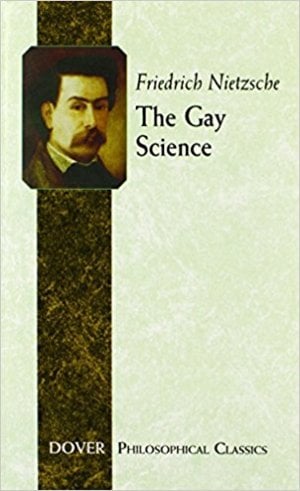
Let us be on our Guard Friedrich Nietzsche
На этой странице вы найдете полный текст песни "Let us be on our Guard" от Friedrich Nietzsche. Lyrxo предлагает вам самый полный и точный текст этой композиции без лишних отвлекающих факторов. Узнайте все куплеты и припев, чтобы лучше понять любимую песню и насладиться ею в полной мере. Идеально для фанатов и всех, кто ценит качественную музыку.

Let us be on our guard against thinking that the world is a living being. Where could it extend itself? What could it nourish itself with? How could it grow and increase? We know tolerably well what the organic is; and we are to reinterpret the emphatically derivative, tardy, rare and accidental, which we only perceive on the crust of the earth, into the essential, universal and eternal, as those do who call the universe an organism? That disgusts me. Let us beware of believing that the universe is a machine; it is most certainly not constructed for one purpose and calling it a "machine" does it far too much honour. Let us be on our guard against supposing that anything so methodical as the cyclic motions of our neighbouring stars obtains generally and throughout the universe; indeed a glance at the Milky Way induces doubt as to whether there are not many cruder and more contradictory motions there, and even stars with continuous, rectilinearly gravitating orbits, and the like. The astral arrangement in which we live is an exception; this arrangement, and the relatively long durability which is determined by it, has again made possible the exception of exceptions, the formation of organic life. The general character of the world, on the other hand, is to all eternity chaos; not by the absence of necessity, but in the sense of the absence of order, structure, form, beauty, wisdom, and whatever else our aesthetic humanities are called. Judged by our reason, the unlucky casts are far oftenest the rule, the exceptions are not the secret purpose; and the whole musical box repeats eternally its air, which can never be called a melody, and finally the very expression, "unlucky cast" is already an anthropomorphising which involves blame. But how could we presume to blame or praise the universe! Let us be on our guard against ascribing to it heartlessness and unreason, or their opposites; it is neither perfect, nor beautiful, nor noble; nor does it seek to be anything of the kind, it does not at all attempt to imitate man! It is altogether unaffected by our aesthetic and moral judgments! Neither has it any self- preservative instinct, nor instinct at all; it also knows no law. Let us be beware of saying that there are laws in nature. There are only necessities: there is no one who commands, no one who obeys, no one who transgresses. When you know that there is no design, you know also that there is no chance: for it is only where there is a world of design that the word "chance" has a meaning. Let us beware of saying that death is the opposite of life. The living is only a type of what is dead - and a very rare type. Let us be on our guard against thinking that the world eternally creates the new. There are no eternally enduring substances; matter is just another such error as the God of the Eleatics. But when shall we be at an end with our foresight and precaution! When will all these shadows of God cease to obscure us? When shall we have nature entirely undeified! When shall we be permitted to naturalise our selves by means of the pure, newly discovered, newly redeemed nature?
Комментарии (0)
Минимальная длина комментария — 50 символов.












